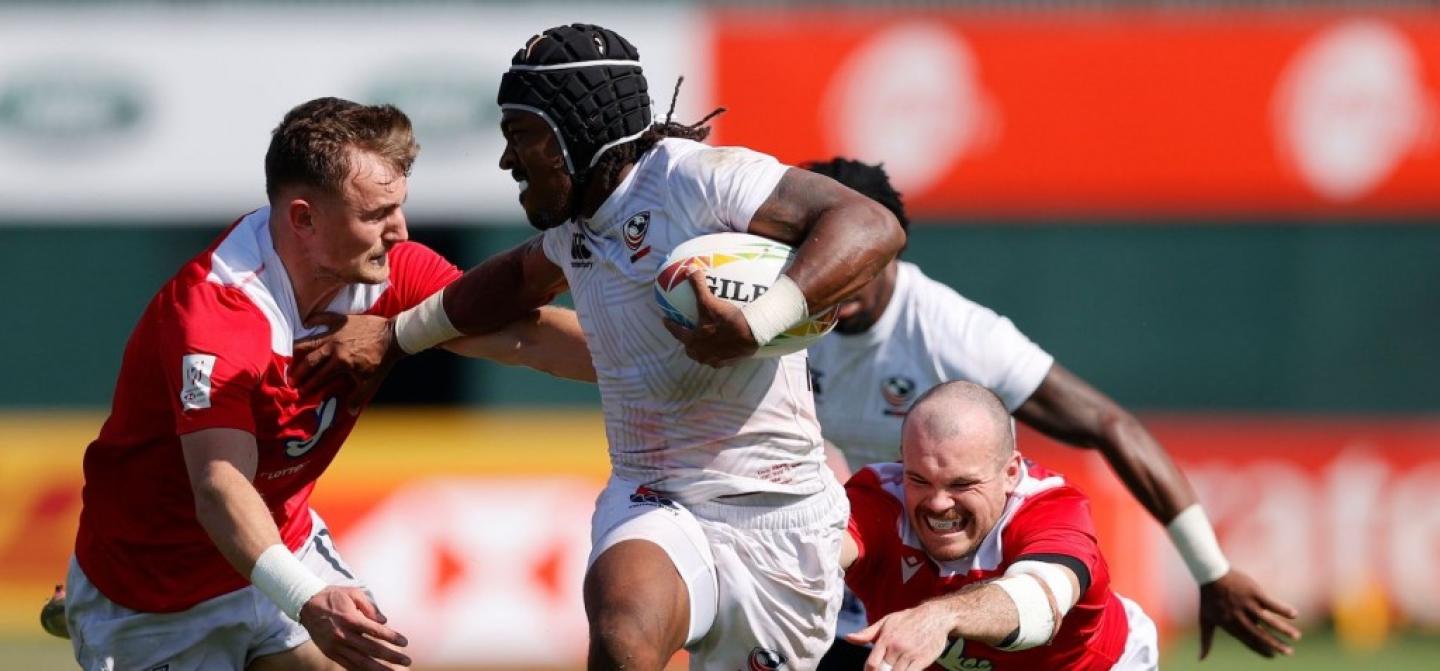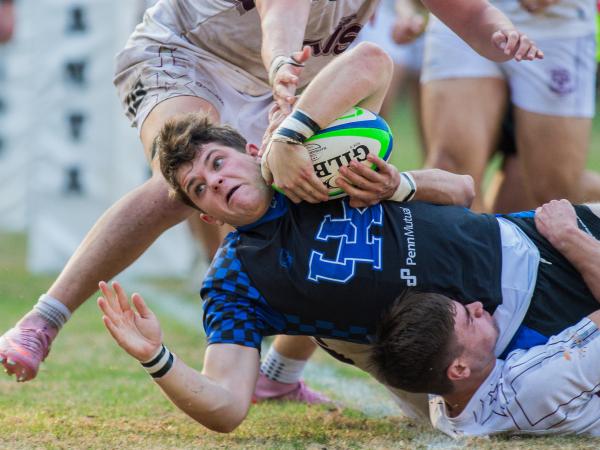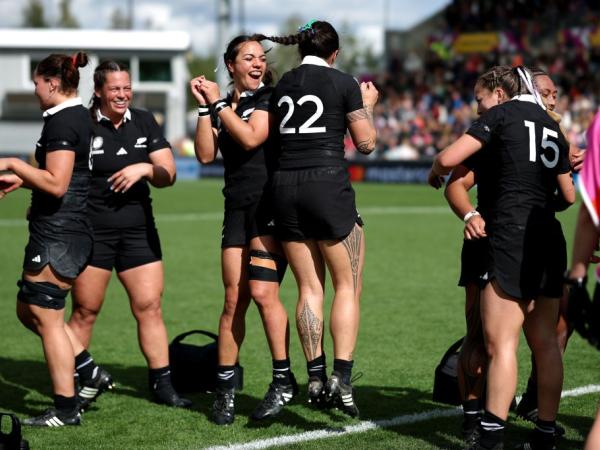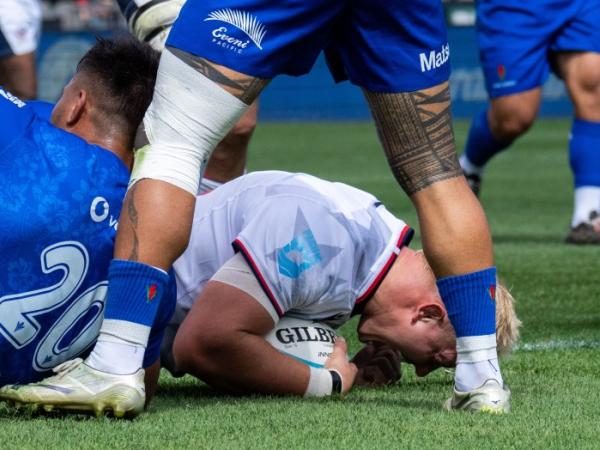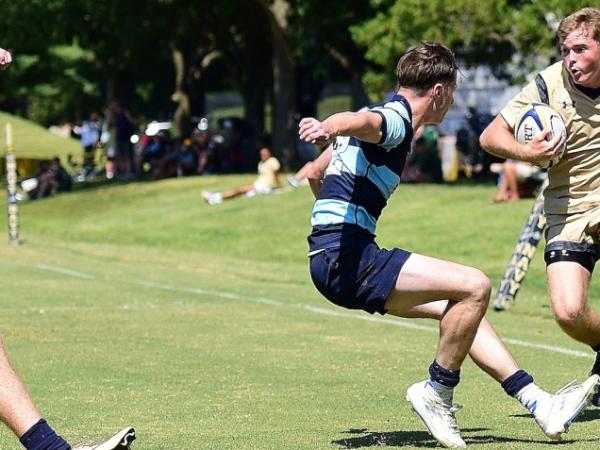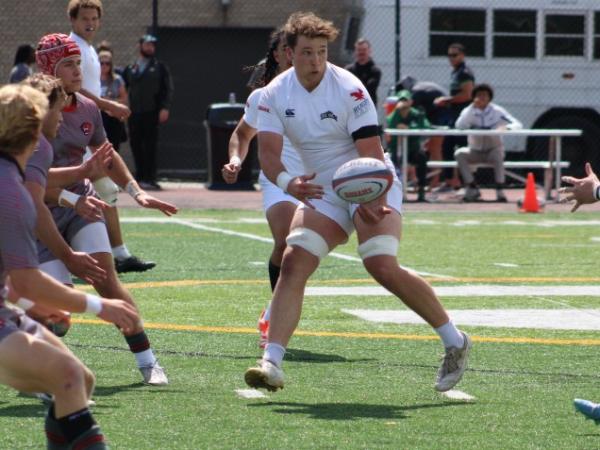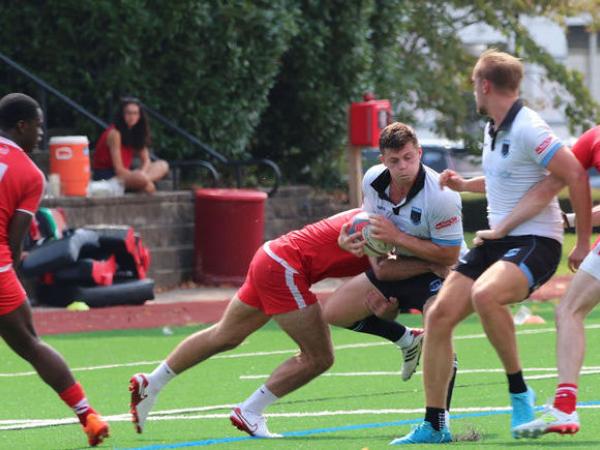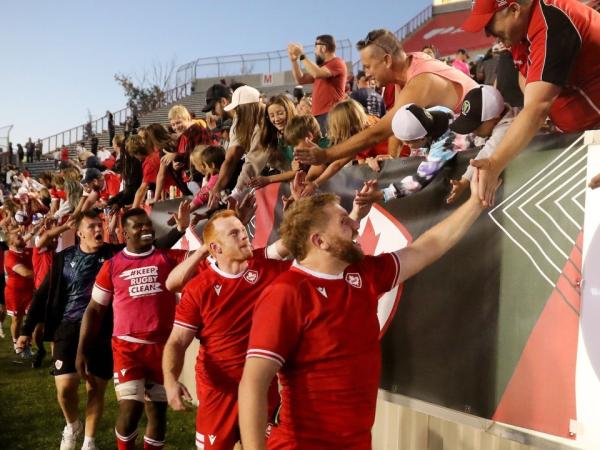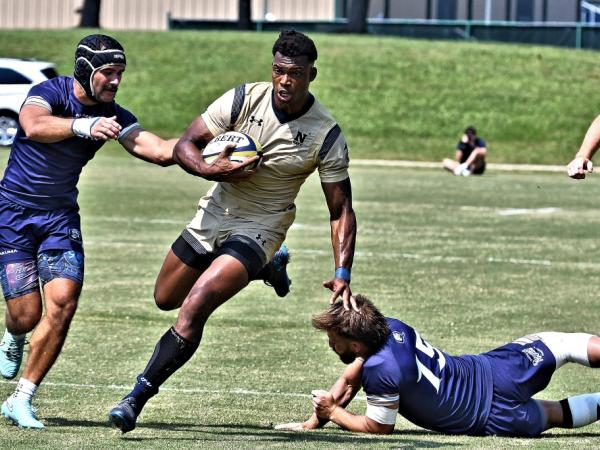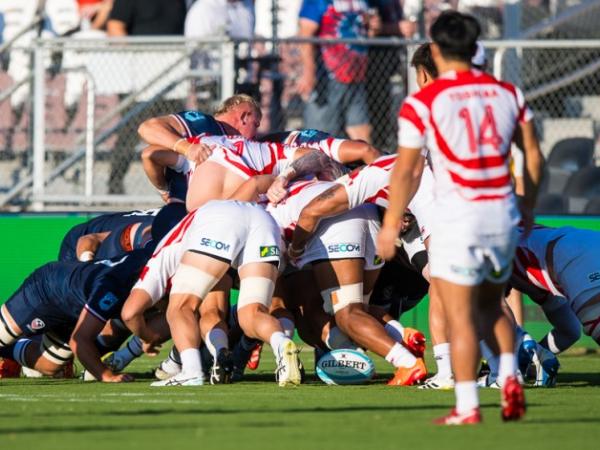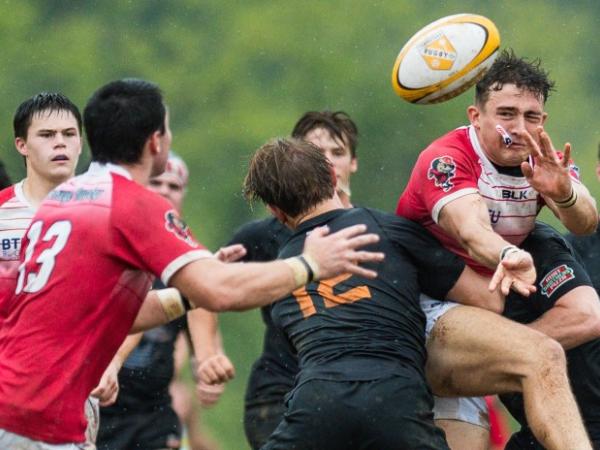The USA Men’s 7s team is in the middle of finding a new identity, and may well have jumped the queue and found it early in Dubai.
The Eagles, looking somewhat shaky on Day One of the first of two Dubai World Series tournaments, turned things around in somewhat spectacular fashion on Day Two to defeat Great Britain and Fiji to make the Cup Final in the desert.
Yes, true, the Americans were then thumped by South Africa in the championship game, but truth be told South Africa thumped almost everyone they played this weekend. Instead, we look at how the glass became half full … or even more full than that.
Day One
The Eagles produced some effective rugby and some problematic rugby on Day One. And since all the games were close it was essentially those little things that made the difference.
Defensively they were solid against Kenya and found that maybe Logan Tago is their new Danny Barrett-type player as the big forward showed he can pound down the wing and score.
Against Spain they weren’t smart, made silly mistakes, committed penalties they didn’t need to do, and gave up two late tries to a team that wasn’t bigger, stronger, or faster.
Then against Argentina the USA team stormed back to beat a very useful Pumas squad—Steven Tomasin’s try at the death tying the game 21-21.
That was enough to put them into the quarterfinals, and from there we saw a more consistently good USA team.
Day Two
From the get-go against Great Britain the Eagles decided that they would succeed through physicality. They would be big and mean and not shy away from the counterruck or mixing it up.
Up 14-5 they made some errors that put GB up 17-14 (penalties, Perry Baker whiffing on a grubber kick, and Joe Schroeder’s kickoff tap-back going into British hands).
But they settled down then to score three straight tries. With Baker having lost a step, he is changing his game, getting involved in the middle of the field more so he could set up someone else on the wing, and hitting the rucks more than every before.
It was that sort of approach that led to the Eagles getting close and then Baker scoring on a pick-and-go from a meter out—not exactly his usual MO.
Schroeder’s issue last year was side-to-side movement, and this year’s version is a different player. He looks light on his feet and in fact it was a sidestep and switch with debutant Lucas Lacamp that set up another switch with Carlin Isles for a try.
With Isles and Tago drawing attention out wide Williams was able to burn GB through the middle and that was it, 35-17.
In the semifinals Fiji was of course a tougher prospect, but in the end Fiji’s tries came less from their ability to invent something and more from USA mistakes. A blind flinging of the ball set up Fiji’s opener. Isles committing a holding-on penalty on his own 22 set up the second.
Of course, it was a Fijian mistake—restart not 10—that produced the USA’s first real chance and Williams cut back behind the scrum and fed Isles who torched everyone.
A series of penalties right before halftime set up Fiji’s third try.
But in the second half it was all USA. Lacamp got them going with some good passing and when he received the return pass had to hear Matai Leuta and Martin Iosefo tell him to just take the rock forward. He did that and scored his first try.
Leuta then did pretty much the same thing as the USA dominated territory over Fiji and won 21-17.
The final? Well it was one step too far.
But overall, 2nd in Dubai and so 2nd in the Series so far is a nice start.
A double switch with @Carlin_Isles on the end of it can only mean one thing...
— World Rugby Sevens (@WorldRugby7s) November 27, 2021
TRY time for @USARugby#HSBC7spic.twitter.com/1ZTnk1S98C
What is This Team About?
Lacamp came into the team obviously looking to be unselfish and create. He has a very fine pass and his thinking “pass first” did him well. His catch-and-switch with Isles was very nice.
Tago still needs some seasoning but he’s a handful with the ball in hand. The former Washington State University football player, who had a look with the Seattle Seahawks, has plenty of power and a good understanding of how to make the ball available.
As we said, Schroeder is more agile than last year, and his work rate is increasing rapidly.
Of the big-time veterans, Folau Niua looks fluid, which is what we want. Stephen Tomasin just gets work done in the breakdown and on defense. Kevon Williams has been outstanding, and along with Martin Iosefo presents real problems for teams up the middle.
We talked about Baker changing his role to a bit more of a physical one. On the final play against Fiji they got a penalty and tapped quickly. It all looked problematic before Baker steamed in out of nowhere to make the try-saving tackle. The Eagles stole the ball from there and kicked to end the game.
Isles looks as quick as ever and is still able to leave people in his dust.
The kicking was pretty special. The Eagles did not miss a single conversion (mostly Tomasin but also other players) all weekend. That’s actually pretty incredible, and while that does mean most of the tries were close to the posts, so what? Going 15-for-15 is impressive, and had they not done so the Argentina game would have been a loss, and so, probably, would have the Fiji game.
This USA team needs to be better on the restart and needs to fine-tune some things defensively and in terms of avoiding penalties. But it has found out what it is—a bunch of street brawlers with brains, a team with physical quick guys and speedy big guys that maybe isn’t as pacy as it used to be, but can handle the modern game.
They haven’t arrived, but this new-look USA team is positioned to be good.






